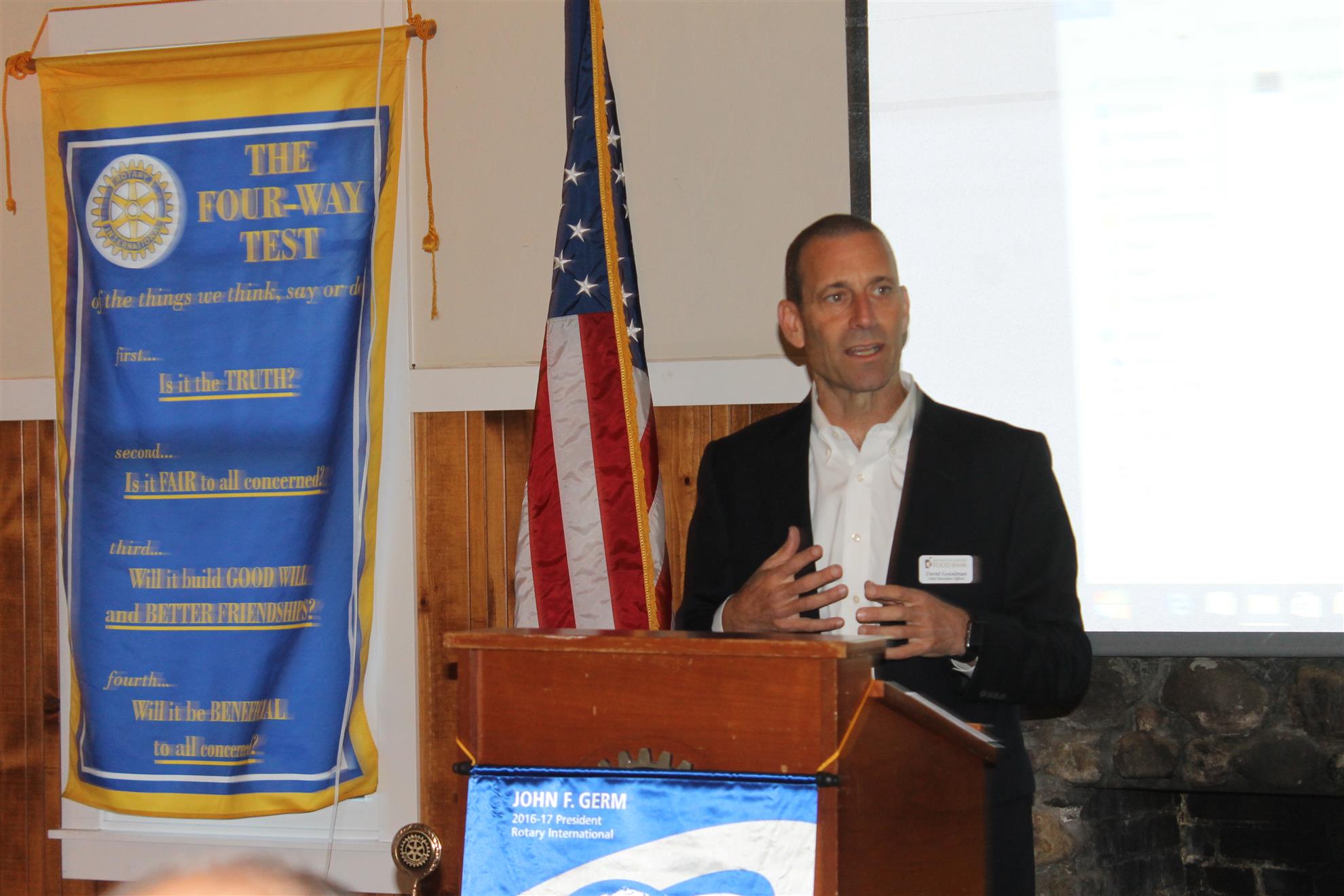David Goodman, Redwood Empire Food Bank
David Goodman, CEO of the Redwood Empire Food Bank (REFB), gave a presentation on the organization and its scope of services as well as a overview of food insecurity in Sonoma County and the Northern California region.

David Goodman, CEO of the Redwood Empire Food Bank (REFB), gave a presentation on the organization and its scope of services as well as a overview of food insecurity in Sonoma County and the Northern California region.
David has been the CEO of the REFB since 2000. At that time it was an organization with three programs providing 4.2 million pounds of food per year. It has subsequently grown to include over 15 programs providing 14.5 million pounds of food yearly. This provides some degree of food security to over 82,000 residents of Sonoma County (1:6 in the county) and also provides over 33,000 meals daily.
15 programs are run directly by the food bank including meal preparation and distribution, coordination with schools and other social entities to provide healthful meals and education regarding food, in addition to procuring and distributing produce, groceries, and other foods provided through donation and discounted purchase. There are 175 community and faith-based partners with the REFB to help extend their services.
In Healdsburg these include the Trinity Baptist Church, Healdsburg Shared Ministries, Salvation Army, Alliance Medical Center, Calvary Church, Community Childcare Council and the Boy’s and Girl’s Club.
Food services are provided out of their warehouse facility, a 60,400 ft.² facility at 3990 Brickyard Way in Santa Rosa, off of Airport Boulevard. At that facilities a process and distribute over 15 million pounds of food per month.
Food services to community groups are provided on a sliding scale fee structure, based on the agency's needs, financial resources, and scope of services. Examples of services provided were given, varying widely from entity to entity. Yearly, the Salvation Army receives $51,000 worth of wholesale value goods for $11,000. The Healdsburg shared ministries receive $371,000 worth of goods at a price of $75,000 and the Trinity Baptist Church receives $474,000 worth of wholesale goods for $5600. Part of this disparity in the cost of food for each entity relates to the fixed costs of operating each facility and each agency's ability to fund raise to help offset its expenses. It is important that members wanting to make contributions to end food insecurity in our County make their contributions to both the REFB as well as their local delivery entity. Fixed costs for the local entities include rent, utilities, insurance, and other non-food related expenses.
Funding for the REFB comes primarily from local donations. Less than 1% of their funding comes from the county, there is some federal funding, and there is also a vocational reimbursement from the state for services including prepared meals for state-mandated programs. The annual budget of REFB is roughly $9.5 million.
Many questions were asked about the operations of the REFB.
David invited members to come and visit the facility and perhaps to volunteer. Their website, http://refb.org/, will hopefully will inspire you to do just that.
David ended his program with a 10 minute slideshow based on interviews that he does with people who come to the food bank for the first time. The spectrum of need covers all segments of society, all levels of education, and invariably is associated in the minds of the clients as something like "I never thought I would need this". He asked us each to examine our own lives, or the lives of our friends and realize that we may each be on the verge of food insecurity depending upon circumstances. Fear of hunger or food insecurity should always be on our minds whether it relates directly to us, or from our perspective , on the minds of people less fortunate than we.